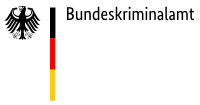
 Identification of fingerprints on thermal paper and Euro banknotes
Identification of fingerprints on thermal paper and Euro banknotes
Even in the age of DNA analysis, fingerprints are still the most important and unique types of contact trace evidence. The KTI maintains the only service in Germany concerned with purely scientific research, development and testing of fingerprint detection methods. These activities encompass the development of practical problem-solving methods, case consultation, the provision of support in the training of scene-of-crime technicians and experts as well as close contact with experts in forensic evidence analysis in Germany and abroad.
 Testing a method for identifying fingerprints on thermal paper
Testing a method for identifying fingerprints on thermal paper
Virtually every object can serve as an evidence-bearing medium in a criminal case. Since new materials are constantly being developed and introduced to the everyday environment, evidence collection and evaluation methods must keep pace with changing requirements. Furthermore, new insights from the fields of science and technology are regularly incorporated into evidence processing methods with the goal of improving detection capabilities and contrasting techniques. Aspects of work and environmental safety, quality assurance and cost-effectiveness are also taken into account in this context.
Development and testing of evidence collection methods are ordinarily carried out in a two-step process. The first step is to generate a test model with which tested methods can be optimized under comparable conditions or assessed with respect to their effectiveness. In the second step, the results are verified on the basis of genuine fingerprints generated under laboratory conditions. If verification is successful, the new or improved methods in question can then be used on authentic trace materials.
